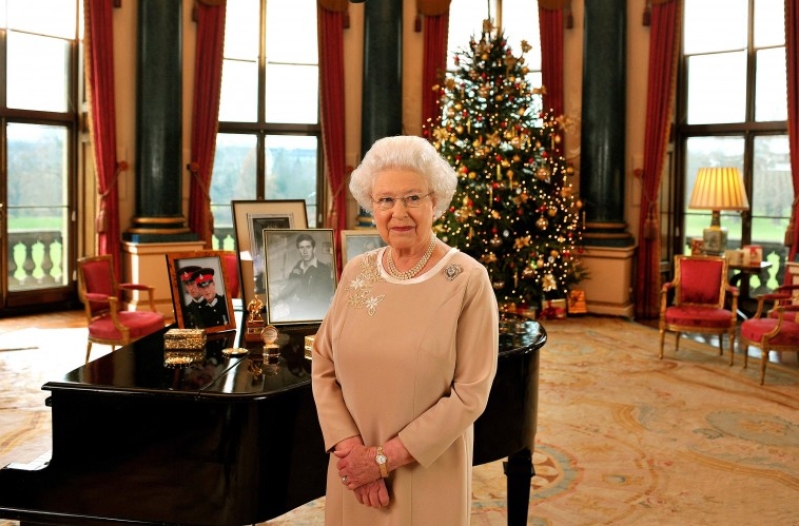
During this year's Royal Christmas message, Queen Elizabeth will reportedly discuss her personal faith and belief in the continuing role of Christianity in British life and amid the continued persecution of believers worldwide.
According to a report from the Telegraph, the 89-year-old Queen's annual address, which last year attracted an estimated 7.8 viewers in the UK, is typically closely guarded until it is delivered on Christmas day.
However, one insider told the Mail on Sunday: "Over the years we've seen a greater emphasis on the Queen's faith, and we're certain to see it in this year's Christmas broadcast. There's a fundamental optimism which, to an extent, is driven by her faith in contrast to the overall gloom. She is driven by a deep and spirited faith."
The former Bishop of Rochester, Michael Nazir-Ali, praised the move and underscored the need for prominent figures to uphold their beliefs amid increasing secularization.
"The Queen was very aware of the need to express her faith clearly while also respecting other beliefs," he said. "There is pressure for the next Coronation to be multi-faith or no faith. My understanding is that it will actually be a Christian event, but obviously the Queen would want to reinforce that."
He also applauded the monarch's dedication to discussing her Christianity at a time when Christians worldwide are facing persecution at the hands of Islamic extremists. "Clearly extremism is a backdrop to anything that any public figures says at this time," he said.
"If people in this country gave greater heed to what the Queen says about the importance of Christianity in our personal as well as our national life, then we would be in a better place to confront it," he added. "The Queen will also be aware that Christians and others have faced unprecedented persecution over the last year in parts of the Middle East, and could even face extinction."
The Royal Christmas message has been a staple of British Christmases since 1932, when the Queen's grandfather, King George V, addressed the nation via radio, notes the Telegraph. Today, the message is read by the reigning monarch and broadcast on television, radio, and the Internet via various providers.
The Queen is not the member of the royal family to address her faith and the necessity of prayer: In a video address played at the House of Lords last November, Prince Charles spoke of his sorrow at the plight of Christianity in the Middle East, the region of its birth, and urged faith leaders to ensure believers have respect for other religions instead of remaining "silent" over the suffering of minorities.
Describing religion as central to "our future as a free society," Prince Charles said that while "horrendous" events in Iraq and Syria had brought the subject of religious persecution "to the forefront of the world's news," persecution is far more widespread.
"The horrendous and heart-breaking events in Iraq and Syria have brought the subject of religious freedom and persecution to the forefront of the world's news," he said. "We have learnt with mounting despair of the expulsion of Christians, Muslims and Yazidis from towns and cities that their ancestors have occupied for centuries.
He added, "Sadly, incidents of violence in Iraq and Syria are not isolated. They are found throughout some, though not all, of the Middle East; in some African nations; and in many countries across Asia...It is an indescribable tragedy that Christianity is now under such threat in the Middle East ...It seems to me that our future as a free society - both here in Britain and throughout the world - depends on recognizing the crucial role played by people of faith."
He also encouraged governments to uphold the freedom of religion, but noted that this is often challenged, even in the West, adding: 'Sadly, in many other countries, an absence of freedom to determine one's own faith is woven into the laws and customs of the nation."






